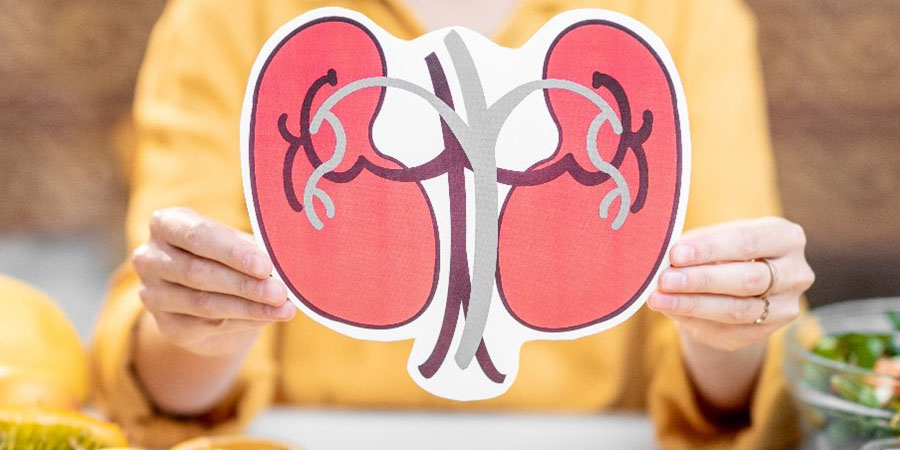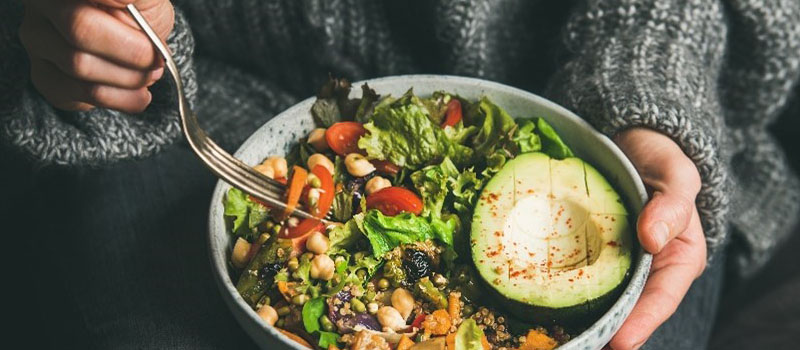Kidneys are bean-shaped organs in our body that perform many important functions. Kidneys help filter blood, help balance minerals, remove waste through urine, produce hormones and maintain fluid balance.
The most common risk factors for kidney disease are unmanaged or uncontrolled diabetes and high blood pressure.
Fluid can build up in the body and waste can accumulate in the blood when the kidneys are not able to function properly and are damaged.
Avoiding or limiting certain foods in your diet can help in decreasing the accumulation of waste products in the blood, improve kidney function and prevent further damage.
Kidney Disease and Diet

Depending on the stage of kidney disease, dietary restrictions may vary. For example, dietary restrictions may vary for people with early stages of chronic kidney disease than those with end-stage renal disease, or kidney failure. Also, those who require dialysis will also have different dietary restrictions. Many foods that are part of a healthy diet may not be right for a CKD diet.
To avoid a buildup of certain chemicals or nutrients in the blood, those with end-stage kidney disease will need to follow a kidney-friendly diet.
The kidneys cannot adequately remove excess sodium, potassium, or phosphorus for people suffering from chronic kidney disease, therefore they may need to control these nutrients. Also, many healthy foods may not be good for CKD.
The fluid which is built up in your body will decrease by eating less sodium, and this will help to lower blood pressure. Usually, one should avoid eating packaged and restaurant food that has a lot of sodium and eat fresh food instead. Look for low sodium (5% or less) on food labels. Also, you should consult your physician or dietician if you want to use any salt substitution.
Phosphorus keeps your body healthy and bones strong. Your kidneys cannot remove extra phosphorus from your blood very well. Excess phosphorus weakens bones, and it can damage the eyes, heart, and blood vessels. People with CKD should avoid eating packaged food as it contains a lot of phosphorus. Whole-grain bread, dark-colored sodas, dairy, beans, meat, and nuts are high in phosphorus.
Appropriate amounts of potassium help to keep muscles and nerves working well. Too much potassium can build up in your blood and cause serious heart problems with CKD. White bread, carrots, and apples are lower in potassium while tomatoes, potatoes, apples, and whole-grain bread are high in potassium. A potassium binder may be prescribed by your physician to help your body to get rid of extra potassium.
A person with CKD should have the right amount of protein. Eating more protein may make CKD worse and the kidneys work harder. Animal and plant foods both have protein. For the right combination and amount of protein to eat, you can consult your dietitian.
CKD Foods
Below are a few examples of food that a person with CKD can eat. You can work with your dietitian to help you find recipes for tasty meals.
- Veggies- cauliflower, onions, eggplant, turnips
- Fruits- apples, cherries, plums, grapes, and berries
- Drinks- unsweetened tea, water, and clear diet sodas
- Carbs- pasta, sandwich buns, white bread, unsalted crackers, and bagels
- Proteins- unsalted seafood, eggs, and lean meats such as poultry and fish
Below are some foods that you should likely avoid on a renal diet
- Avocados- As avocados are a very rich source of potassium, those with kidney disease may need to avoid them. If needed, one can still include this food in their diet by reducing the portion size to one-fourth of an avocado. However, every individual has different needs for their diet and health goals.
- Canned foods- Salt is added as a preservative to increase the shelf life of canned foods, and most of the canned foods contain high amounts of sodium. It is often recommended that people with kidney disease should avoid or limit their consumption of canned foods.
- Dark-colored soda- To enhance flavor, increase shelf life, and prevent discoloration, many food and beverage manufacturers add phosphorus during processing. As a result, sodas, especially those that are dark, should be avoided on a renal diet.
- Bananas- Bananas have high potassium content and therefore should be avoided in a kidney-friendly diet.
- Dairy Products- They are a good source of protein and are natural sources of phosphorus and potassium. Consuming too much dairy, in combination with other phosphorus-rich foods, can be harmful to bone health in those with kidney disease.
- Orange juice and oranges- Orange juice and oranges are rich sources of potassium and hence likely need to be avoided or limited on a renal diet. Grapes, apples, and cranberries are all good substitutes for oranges as they have lower potassium content.
- Processed meats- They are generally considered unhealthy due to their preservative contents. To improve their taste and preserve flavor, processed meats contain large amounts of salt.
- Apricots- Apricots are high in potassium and hence should be avoided in a renal diet.
- Potatoes and sweet potatoes- Potatoes and sweet potatoes are potassium-rich vegetables and should be avoided in the renal diet. Potatoes and sweet potatoes can also be soaked or leached to reduce their potassium contents.
- Tomatoes- Tomatoes also contain high potassium and may not fit the guidelines of a renal diet.
- Prunes, dates, and raisins- These dried fruits contain high amounts of potassium and should be avoided in the renal diet.
- Packaged and instant meals- Processed foods contain a major amount of sodium. Examples of such foods are microwaveable meals and instant noodles.
Foods listed above containing high sodium, high potassium, and high phosphorus foods are best limited or avoided. Reducing your intake of potassium, phosphorus, and sodium can be an important aspect of managing kidney disease. Also, restrictions related to diet and nutrition will vary based on the severity of your kidney damage. Working with your physician and renal dietitian can help you design a renal diet meeting your individual needs.
If you are concerned about your kidney health or function, visit us. To schedule an appointment with us, please visit – https://swkidney.com/contact-us/ OR Contact Us – 480.610.6100

